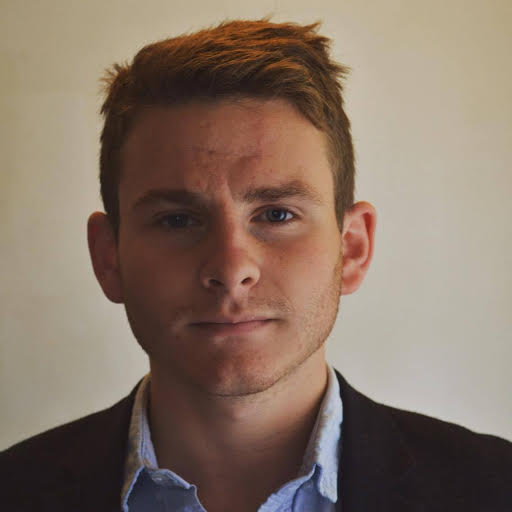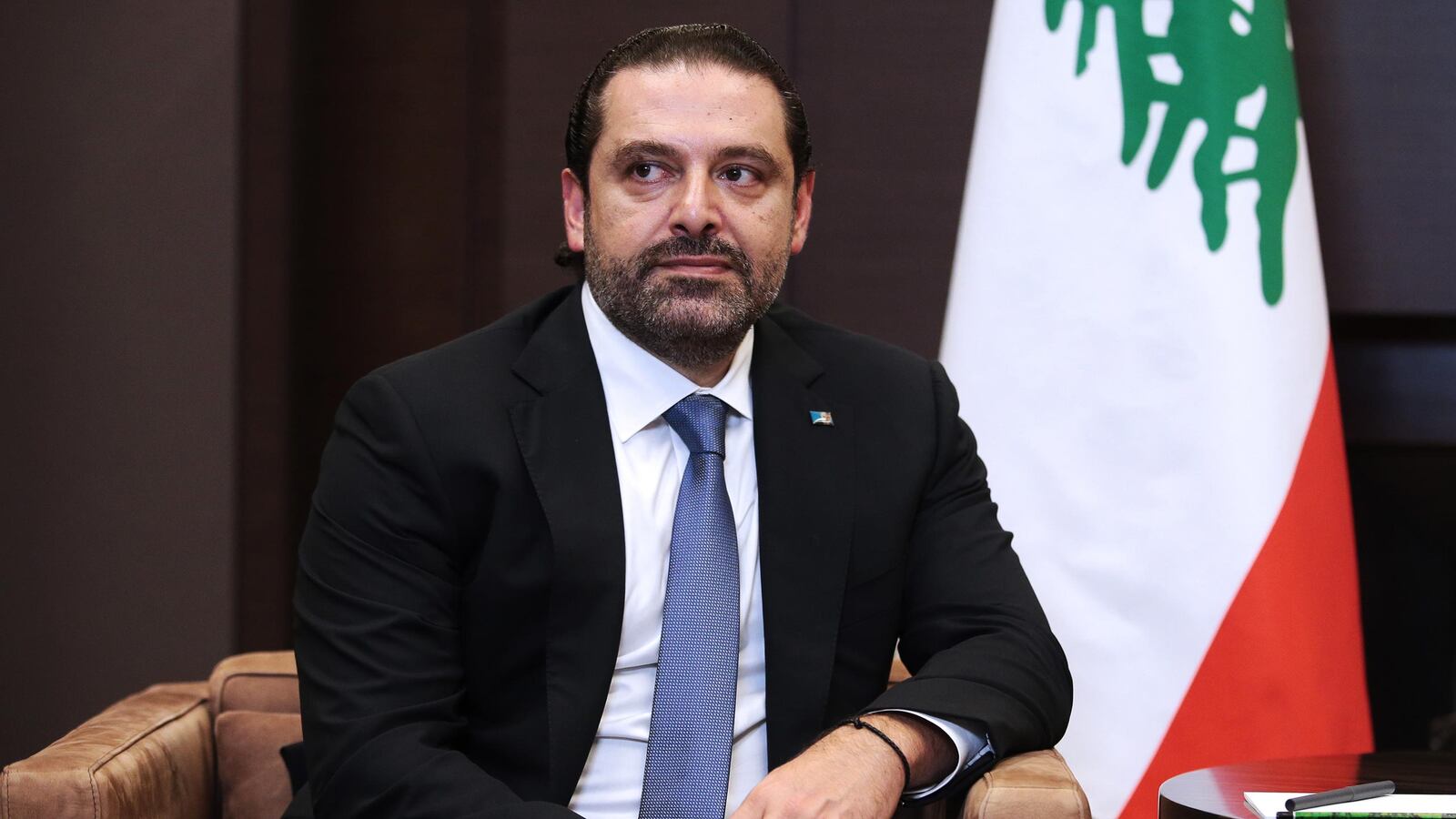BEIRUT—When Lebanon’s Prime Minister Saad Hariri announced his shock resignation some two weeks ago, Lebanon was heartbroken, and angry. Hariri’s resignation speech—made from Riyadh—was markedly out of character, and many assumed he had resigned at the behest of Saudi Arabia. Indeed, many assumed he was a captive there.
Whether it was planned, or sheer coincidence, Hariri’s return late Tuesday night, after more than two and a half weeks out of the country, came on the eve of Lebanon’s 74th Independence Day. And as the sun rose on Beirut it was clear that Wednesday’s celebrations would be as much about Saad Hariri in the present as about Lebanon in the past.
Early in the morning, after meeting with President Michel Aoun, Hariri announced he was “postponing” his resignation at the president’s request. Speaking later from his window to the thousands who had gathered outside of his downtown residence Hariri said, “I am going to stay and continue with you, we are here at the front lines, defending Lebanon, its stability, and its Arabism. We have nothing that is more precious than Lebanon. Our slogan will always be 'Lebanon first.'”
Cheers erupted from the crowd, a sea of Lebanese flags, red and white emblazoned with the Lebanese cedar, waved frantically, also the light blue flag of Hariri’s Future Movement. The chant “Allah, Mohammed, Saad” rang out, an incantation full of religious allusion for the Sunni Muslim prime minister.
Everyone knew that this was the son of billionaire, Rafiq Hariri, who had made his fortune in Saudi Arabia and returned to Lebanon to become prime minister and rebuild the core of the city in the 1990s, only to leave office amid disputes with the Assad regime in Damascus and die in a 2005 car bomb attack right in the heart of Beirut. Courage has its costs in this country, where enemies and friends often trade places.
The announcement that Saad Hariri had postponed his resignation saw an explosion of relief, the crowd was euphoric with pride. Another man yelled out, “That’s the Saad we recognize,” referring to the out of character resignation speech and sound bite interviews he had given in the past weeks. Young boys from the Lebanese Scouting Association proudly wore caps with Hariri’s portrait printed on them. “Saad, Saad, Saad,” they chanted.
All morning, the Lebanese had been reading the signs that this might happen.
When Hariri attended the military parade for Independence Day, he had sat in the seat reserved for Lebanon’s prime minister—a statement. He looked noticeably less stressed, his eyes unstrained and beard more trim than during his public appearances in Saudi. It was as though his return to Lebanon given him a shot of adrenalin.
When President Aoun greeted him, Aoun appeared to whisper in his ear, “Thank God for your safe return”—the sentiment of relief that summed up the overwhelming atmosphere of the day. Lebanon’s darling prime minister, perhaps never so loved as when he seemed lost, had returned.
Hariri’s two-week stint in Riyadh might have plunged the country into deep political uncertainty, but it has done incredible things for his popularity. Now it is impossible to find a street without posters of him.
Even in the Hezbollah suburb of Dahieh, a stronghold of the Shiite Islamist group which holds huge sway over many of the country’s institutions, and which the Trump administration considers an Iran-backed terrorist organization, Hariri’s portrait looks down on the traffic and street vendors. Politicians of all sects came out to support Hariri, and condemn the Saudi actions. Even Hezbollah leader Hassan Nasrallah backed up Hariri, labelling his Riyadh statement a “violation of Lebanese sovereignty” and said it caused “harm to the PM’s dignity.”
“When Hariri resigned, I felt that the Saudis had cut the cedar tree from our flag, now he is back, our flag is back, our pride is back,” said Tariq Ali, a taxi driver who had travelled to Beirut with his family from his home in Tripoli some 80 Kilometers north. “Hariri’s return is our third independence,” he said, the first being from France some 74 years ago, and the second from Syria, which withdrew its troops in 2005. “Now we are independent from Saudi.”
Yet, for all the criticisms of Saudi efforts to strong-arm Hariri into resigning over the past few weeks, the independence day celebrations did see the virulent anti-Saudi sentiments that some expected. Several young men flew the distinct green Saudi flag in the crowd without issue. Indeed, some bystanders pestered them for pictures with the Saudi standard in hand.
The Lebanese have grown used to living with major influence from both Tehran, through Hezbollah (and also through the Christian president, Aoun), and from Riyadh through the Hariris. They don’t want to be caught in the middle of Saudi-Iranian proxy wars.
“Saudi Arabia is good for Lebanon, otherwise we would have only Hezbollah,” says Mohammed Haddad, draped in a Lebanese flag. “But they [Saudi] need to respect us. We will not let them control all the strings, that is why we are independent.”
Saudi Arabia has invested a lot in Lebanon. As Haddad re-joined his family, a procession snaked through the city’s central district, the cobbled streets and luxury shops were all, at least in part, built as result of huge Saudi investment in reconstructing the city after its devastating civil war.
Just a few years ago, the streets of downtown Beirut were full of Saudis and other Gulf Arabs on weekend trips perusing designer stores, buying lingerie, and enjoying the cosmopolitan, liberal nature of Beirut. The Saudi visits have largely dried up in recent years, downtown Beirut often resembles a ghost town. But today it was awash with Lebanese nationalism, and popular support for one of the few men many Lebanese believe can hold the country together: Saad Hariri, who is a Saudi as well as a Lebanese citizen.
Hariri worked the crowd, posing for selfies, and holding babies. As he eventually disappeared back into his residence, the crowd remained. The atmosphere was like that of a carnival, music blared, and drums banged.
Almost in tears an elderly man named Hassan said, “The Hariris are the best thing that ever happened to Lebanon, Rafiq rebuilt Beirut after the war, he brought all the sects together, now Saad can do the same. Saad is Lebanon, and Lebanon is Saad.”





